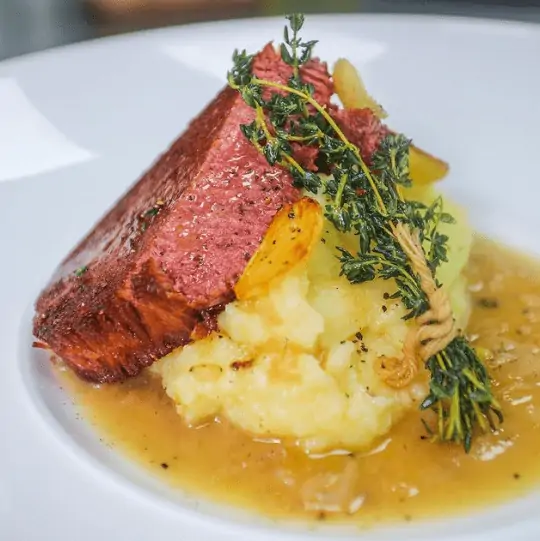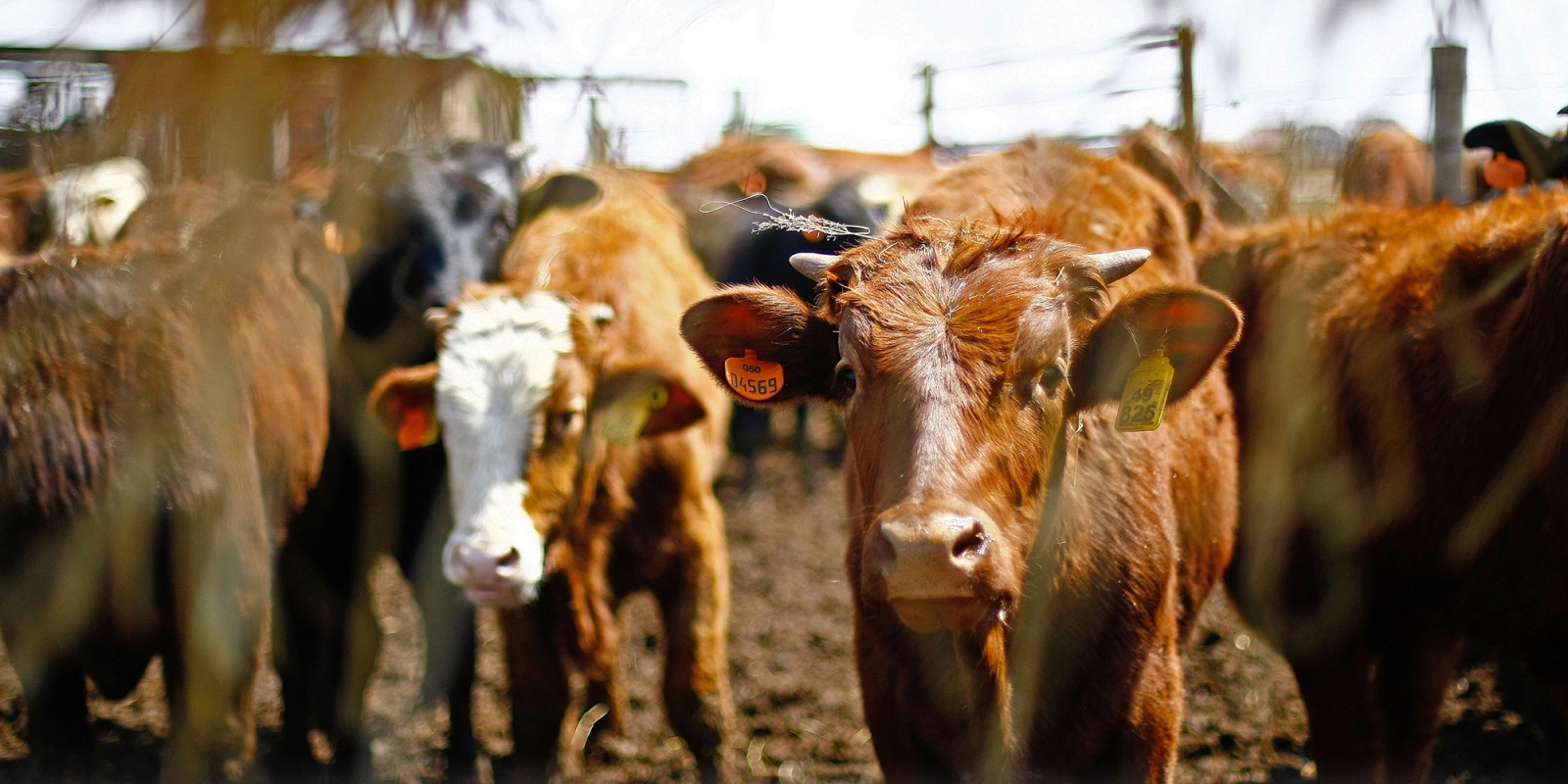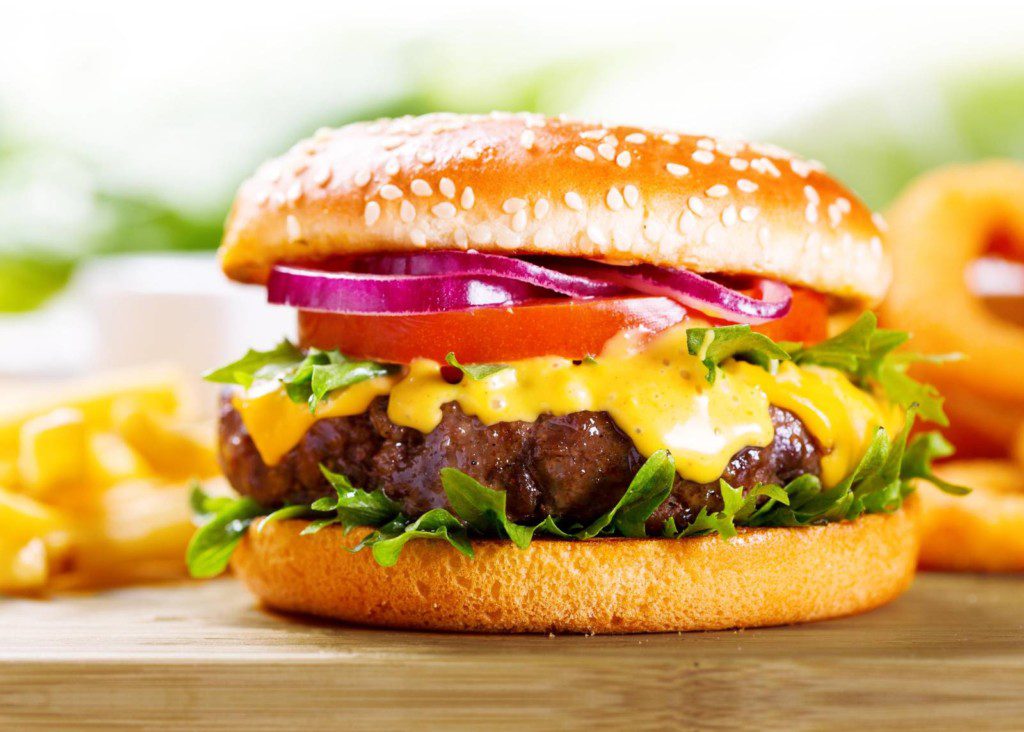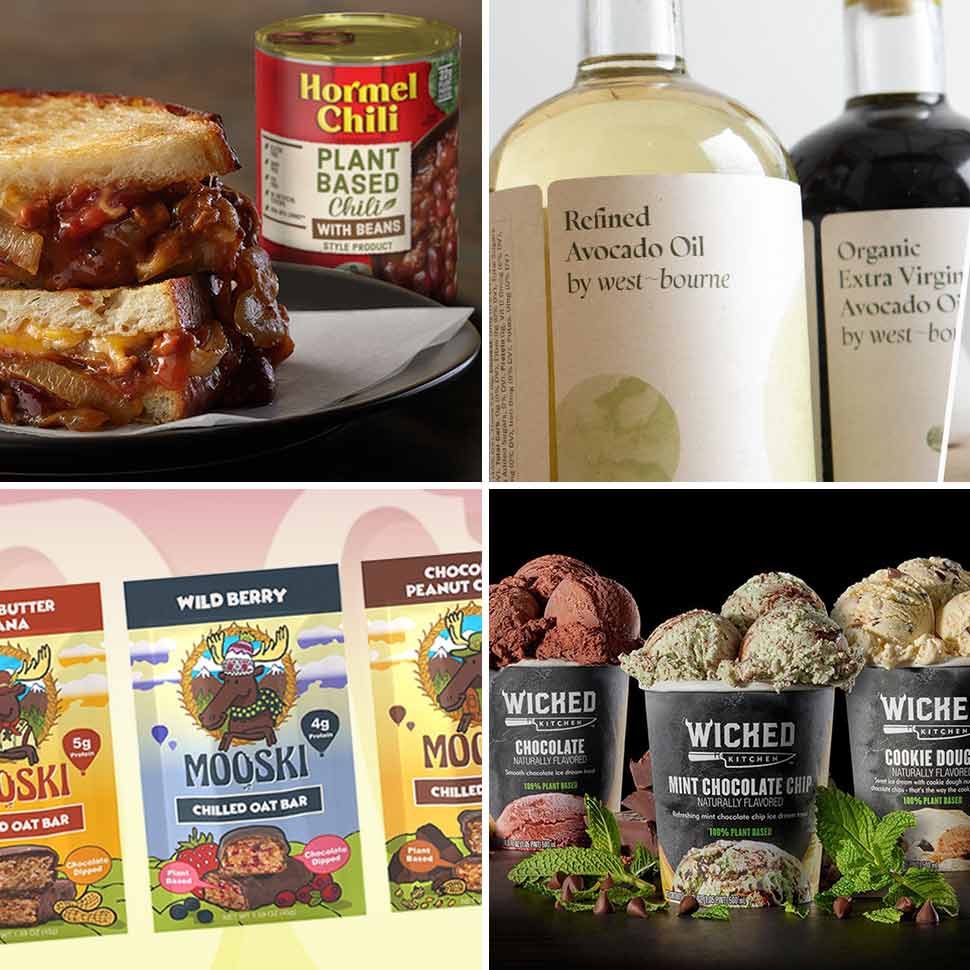Lab-grown meat
- After two years of research and development Mzansi Meat Co says it has successfully grown enough meat in a lab to make a meal.
- What started out as a tiny biopsy taken from a cow has been nurtured to become Africa’s first beef burger patty made in a lab.
- According to co-founder Brett Thompson, the meat has the flavourful consistency of real meat without the guilt of rearing cows.
- For more stories go to www.BusinessInsider.co.za.
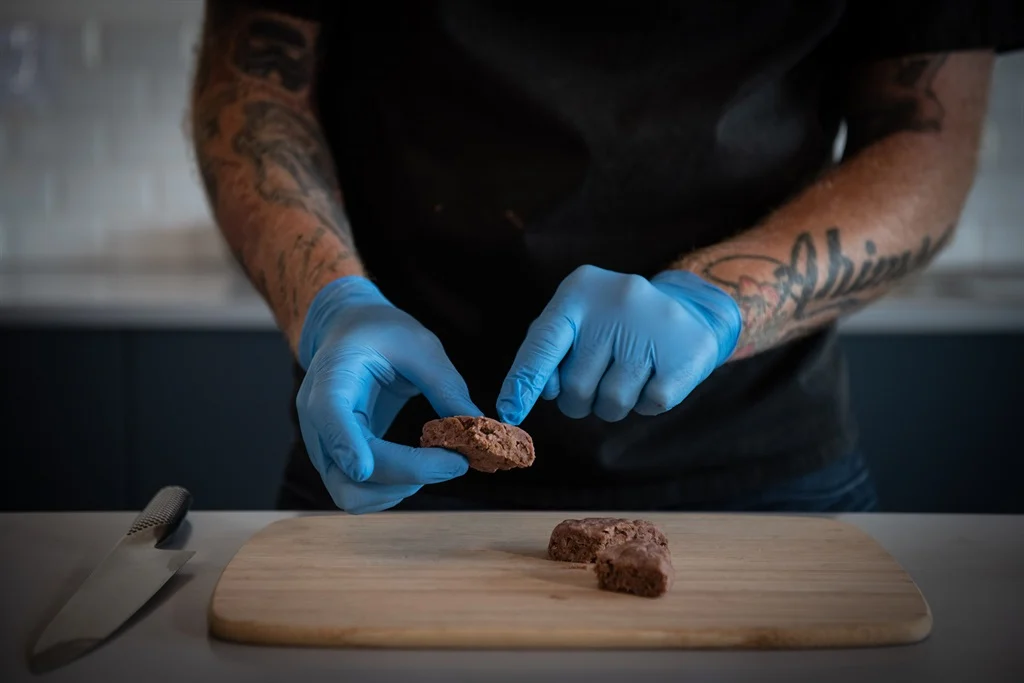
Imagine you’re looking down at a hot juicy burger patty. It’s full of flavour and has that tantalising aroma that gets your stomach grumbling. But, what’s on your plate didn’t come from an animal running around a field. Rather, it was born in the jelly of a petri dish and “reared” in a lab in Woodstock, Cape Town.
As farfetched as it sounds, for South African entrepreneurs Brett Thompson and Jay van der Walt who started the Mzansi Meat Co on the back of a dream to see people eat more sustainable food back in 2019, this has just become a reality.
Imagine you’re looking down at a hot juicy burger patty. It’s full of flavour and has that tantalising aroma that gets your stomach grumbling. But, what’s on your plate didn’t come from an animal running around a field. Rather, it was born in the jelly of a petri dish and “reared” in a lab in Woodstock, Cape Town.
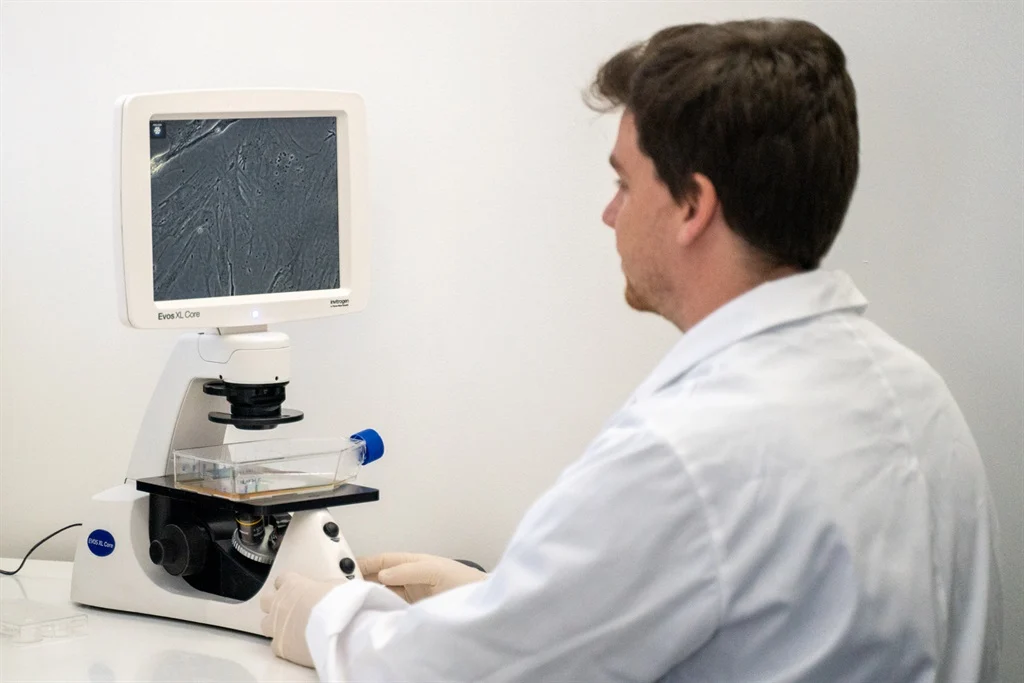
As farfetched as it sounds, for South African entrepreneurs Brett Thompson and Jay van der Walt who started the Mzansi Meat Co on the back of a dream to see people eat more sustainable food back in 2019, this has just become a reality.
“People need to see something before they believe it. You can’t keep on trying to convince people that this is something, that’s going to be a thing. Because it’s a new technology until you can show them, and be very transparent about the process, as to how you got there,” says Thompson.
After two years of research and development, they have grown the first beef burger patty in Africa made from cultivated meat in a laboratory.
“We were all curious to see what it tasted like. It was tasty and meaty, and it had that beef aroma. The crucial thing was, it had that sizzle, that fat content and the umami mouthfeel, that you get from meat that you don’t get just yet from a veggie burger meal – those crucial components were all there.”
In theory, cultivated meat tastes the same as real meat, but instead of farming cows out in a field, scientists take cell proteins and grow them in bioreactors in the laboratory – an idea so farfetched that few believed they could pull it off.
“In the beginning, several professors thought we were crazy, saying it was never going to work,” says Thompson.

Thompson believes that cultured meat will be the next thing to tackle the world’s growing need for food. He wants it to take over our restaurants and supermarkets, much like how plant-based alternative meats like Beyond Meat patties are doing so today and to reduce the impact of raising cattle which takes a heavy toll on both the land and our carbon footprint.
What makes the whole process so hard to believe is that all this was born from a tiny 0.5-gram sized biopsy taken from a cow. By nurturing the proteins in a bioreactor and feeding it nutrients, scientists can mimic the conditions of a body, thus encouraging the cells to expand and grow.
In the Mzansi lab that process started out back in in 2019 as five cell lines of bovine – three of them muscle and two of them fat. Just shy of two years later there was enough to make their very first meat samples which ended up being fried in a pan and turned into a bunch of meatballs – a mix made from blending 30% cultivated meat and 70% plant-based binders.
“That taster immediately made the project tangible… after 15 years of talking about animal advocacy, and plant foods, and alternative proteins, to be able to sit in our kitchen and eat a little meatball after all that work. It was incredible,” says Thompson.
From there the recipes became more complex. They slowly integrated more and more cultivated meat until the burger patty which you see in front of them now, contains up to 80% cultivated meat.
Key to getting the patty just right has been the flavour. For this they enlisted the help of their own chefs and food tech partners Deli Spices and Mane, one of the largest flavour and fragrance companies in the world.
“There’s so much more to meat than just the taste, the taste was there, the aroma was there, the moisture, how it holds in the pan,” says Thompson. “While we were working on making the muscle and fat, they were working to improve that aroma, to improve the taste, and get the correct binding and scaffolding.”
Ultimately, Mzansi Meat wants its meat to be 99% cultivated, but this will take many more years of research.
“We’ve got a long way to go to reach commercial viability. To get that profile to be the meatiest meat burger we can make, we are going to be improving all along the way. We have a current capacity of about 100 litres. We’re hoping to optimise that for the rest of the year to be producing about five kilograms of cultivated muscle and fat. Thereafter we are going to be moving into a new facility, which is going to be the building up to a 10,000-litre facility somewhere close in Woodstock.”
The team has goals of seeing a product on shelves and in a commercial setting by 2024, but Thompson cautions this would be on a small scale and with a heavy price tag.
“It’s hard to say but we are looking at R100-R175 for a 100-gram burger, whenever we start getting to food service, so that will on the plate, not on wholesale.”
Their goal is to reach price parity in five to 10 years’ time making their lab-grown meat available for all South Africans.





